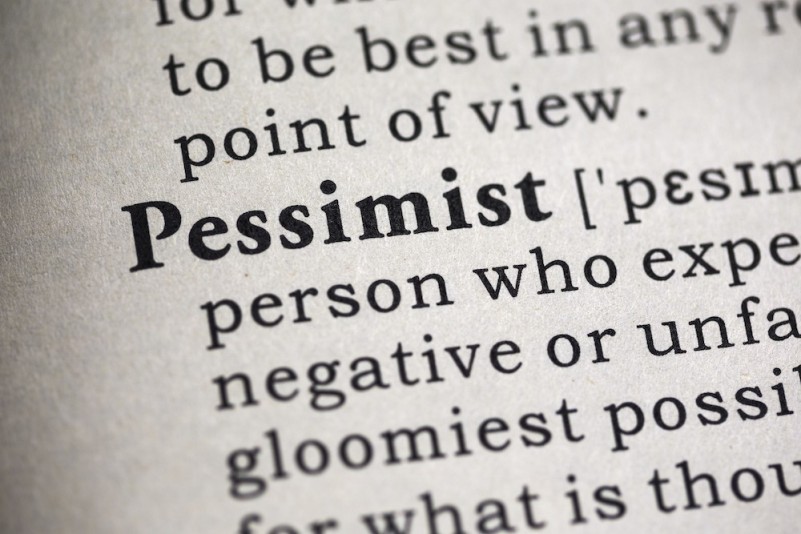Imagine you’re the supervisor of a team of employees. You send out an email asking for feedback on a sponsorship opportunity the company is considering.
“This looks like an awesome opportunity to raise our profile!” Amy writes back.
“Hmm…Do we have a sense of who the attendees are going to be? I noticed the deadline for sponsors was last Tuesday, so it seems a little suspect that they’re just reaching out to us today,” Dave replies.
If you prefer Amy’s response, you aren’t alone, but what if I told you ol’ Debbie Downer Dave might actually be the more valuable employee?
We often categorize pessimists and naysayers as workplace problem children, but those who offer up sober second thoughts (not to be confused with garden variety complainers and misanthropes) shouldn’t be automatically discounted as drains on office morale. In fact, they might just be your best hires. Here’s why:
Invested people ask questions
People who don’t care are more likely not to speak up. They’ll nod in agreement while mentally composing their grocery list or fire off a “sounds good” email without a second thought. Taking the time to look for hidden downsides and raise questions is a sign of someone invested in the outcome of the decision. Consider that the naysayer in your midst isn’t trying to rain on anyone’s parade, but attempting to suss out the worst-case scenario and spur the group to develop a workable risk mitigation strategy. She’s invested in the organization’s success and she’s evaluating business moves in light of how likely they are to contribute to that success. Put another way, just because you buy travel insurance, it doesn’t mean you don’t expect to enjoy your Jamaican getaway, does it? Your office pessimist is your insurance policy.
It takes courage to go against the flow
Do you want to be surrounded by sycophants or would you rather hire people who have the gumption to take a stand? The corporate world isn’t that far removed from high school. Everyone wants to be one of the cool kids (entrepreneurs are the new prom queens) and to avoid standing out in a negative way. The guy who’s willing to put up his hand and ask, “Hey, what about X?” is taking a risk. He’s willing to draw attention to himself and to defy the Bystander Effect. He’s embracing the attitude of outspoken Hustler publisher Larry Flynt that,”sometimes there’s no greater honor than being a righteous pain in the ass.“ Someone who has principles and a point of view and is willing to make them known, even when that goes against the group or alienates others, is the kind of person you should want on your team.
Your own work gets stronger
The presence of devil’s advocates and skeptics should push you to do work that stands up to their scrutiny. You know your assumptions will be questioned, numbers will be crunched and every SWOT analysis scoured in detail — why not treat that as a worthy challenge to be tackled? Just like taking a class from a hard-grading professor in your college days, you understand that getting buy-in from a habitual naysayer means that you’ll have to go above and beyond to win their approval. You’ll need to shore up any weaknesses in your plan, anticipate their counter arguments and be candid about potential risks and how they’ll be addressed. Having to run the pessimist gauntlet when proposing a new idea helps you to become a rigorous, holistic thinker and if you can turn a doubter into a believer, you know you’re doing something right.
This article was written by J. Maureen Henderson from Forbes and was legally licensed through the NewsCred publisher network. SmartRecruiters is the hiring success platform to find and hire great people.

